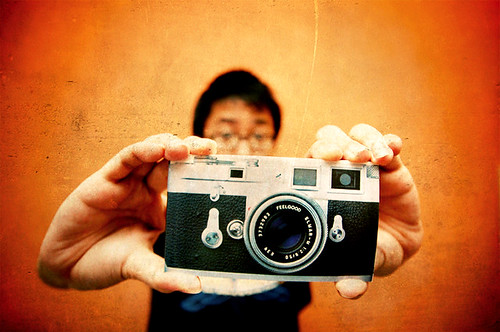
Image: New "Camera"! , a Creative Commons Attribution (2.0) image from smanography's photostream
One of my favorite uses of Flickr is to search for photos licensed under Creative Commons - when I use photos in my LibGuides, I always use ones licenced this way.
To find CC licensed photos, start with the Flickr Advanced Search. Select the box by "" and if you're using it commercially, select that box too. Then search! Always double check, but in most cases, you just need to provide attribution whenever you use the image. I try and provide a link to the end result on the person's flickr account as well, because people like to see their photos in action.
If you find yourself needing attribution often, I suggest grabbing this attribution bookmarket. All you do is click and hold the link that says "show flickr attribution" and drag it to your Firefox toolbar. Then whenever you're on a flickr page, click the bookmarklet button and it will generate a popup window with all the attribution information you need! Very handy!